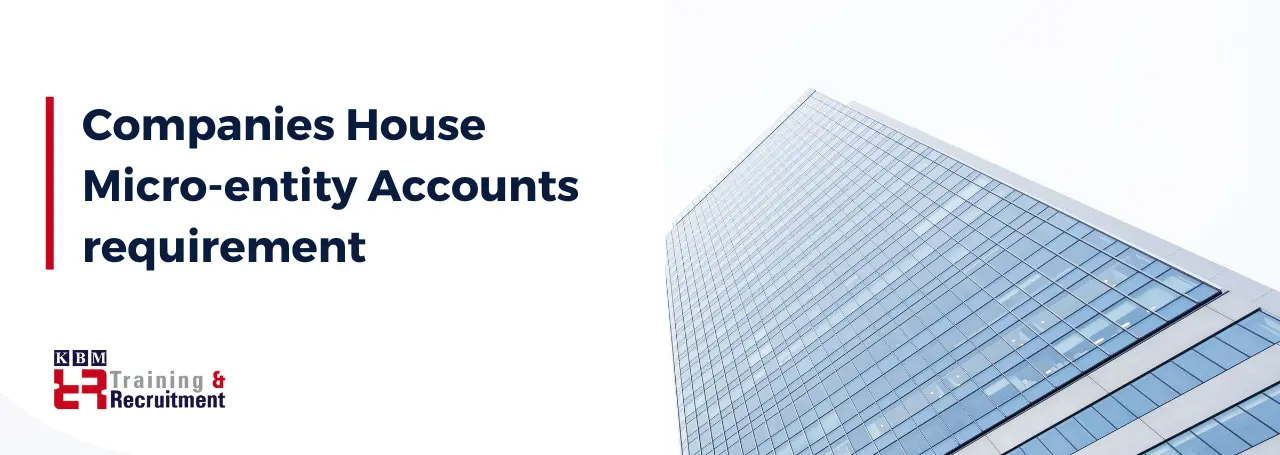Micro-entity or micro-company are the same, a very small private limited company. These companies can file their simplified year-end accounts to Companies House with less information.
Filing micro-entity accounts have both benefits and drawbacks. Like, in some industries and sectors, filing Full Accounts with complete details demonstrate the company's health, prestige, and status sense.
This article is worth reading for Companies House Micro-entity Accounts' requirements regarding very small companies.
What are micro-entity accounts?
Micro-entity accounts are time and money savers. All companies must submit a Company Tax Return to HMRC. However, small companies have options to submit their simplified accounts.
Submitting simplified accounts instead of full accounts is only sometimes the best choice. A small company becomes a micro-entity when it meets any two of the following three annual thresholds:
- Balance sheet amount of £316,000 or less
- Turnover amount of £632,000 or less
- Average 10 employees or less
Even meeting these annual thresholds, some companies still can't file their abridged accounts, such as:
- Limited liability partnership
- Not-for-profit companies
- Public limited company
- Financial institutions
Companies house exempt micro-companies from complete financial reporting requirements. Micro-entities have the flexibility of submitting simple accounts comparing small, medium and large companies. It helps them avoid consuming the same time as large companies.
Filing micro-company accounts
Suppose your limited company is just you and a staff member or two without any shareholders to update. You might submit simplified accounts without including the director's report and allied documents.
On the other hand, your year-end accounts may become a compliance hurdle that you want to come out quickly. However, preparing micro-entity accounts is no stress.
Micro-entity accounts' limited financial operations become more challenging when you consider expanding your business. Shareholder buy-in, funding, loans or investment to grow your business require full accounts. So micro-entity accounts with limited information can't serve this purpose.
Also, you can submit 'filleted' accounts to Companies House. Filleted accounts reduce your company performance information to become publicly available. Hence, it keeps your information private, not showing your competitors your company's financial situation.
How can I decide to prepare and file micro-company accounts?
It would be best to think before choosing your micro-company account filling option. This option offers the following advantages:
- Less time-consuming compared with filing full company accounts
- Simple processing, less chance of doing wrong things
- Quick nature of filing your accounts
Also, it is only sometimes advantageous for an entity to choose for the reduced accounting disclosure, which is allowed by the micro-entity regime. The micro-entity accounts:
- Do not have detailed information
- Become challenging in preparing next year's micro-company accounts
- Formats are not flexible enough because of allowing only one profit and loss account format
- Hardly present your company's position and accurate presentation
Micro-entity accounts preparation
If you want to prepare your micro-entity accounts, you will need the following abridged:
- Profit and loss account (to start from gross profit instead of turnover)
- Balance sheet (minus debtors, creditors etc.)
Unless you decide to claim a Small Companies audit exemption, you will need an auditor's report also. Unlike abridged small business accounts, there is no director's report required. Many micro-entities have exemptions for the audit, again, no auditor's report filing.
Another option is to fillet your accounts for the public, reducing how much information becomes publicly available. Fillet accounts mean only filing your balance sheet with footnotes and the profit and loss account statement, which you still need to file. Also, ensure your annual accounts filing following the Small Companies' regime.
Alongside filing micro-entity accounts, you prefer sharing as much information privately with your company's shareholders and members. The shareholders invest money or time into your business and must know how the company performs.
Micro-entity accounts filing
You can file micro-company using various options like the online Companies House WebFiling service. Simultaneous filing in both Companies House and HMRC. Also, the Company Accounts and Tax Online (CATO) service work also best.
These filing options require your Government Gateway details and Companies House authentication code. Also, you can choose to file your accounts on paper by posting them in, requiring plenty of extra time.
Can I use an accountant to prepare and file my micro-company accounts?
Filing micro-entity accounts can be a challenge. Your micro-entity accounts require to meet the Financial Reporting Standard FRS 105. Also, familiarising yourself with the balance sheet and profit & loss account still requires more understanding.
Also, you must understand what's necessary for the abridged versions. Hence, you need an Accountant to be Companies House and HMRC compliant. Using an accountant to file your micro-company accounts also saves hassle and time.
At KBM, we also offer practical training in preparing Final Accounts. Our QuickBooks and Xero Final Accounts training fully help you learn to prepare all-size company accounts. Also, these programmes help accountants become Companies House claimants.






















